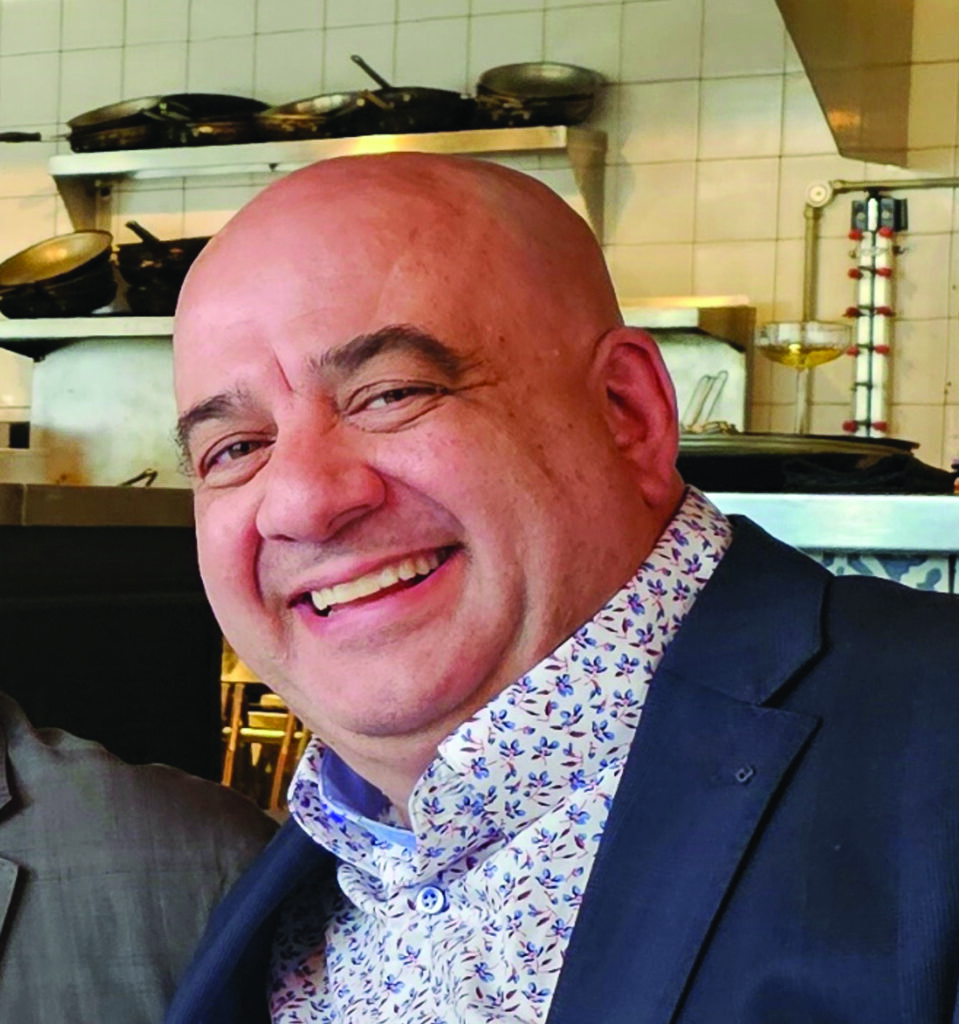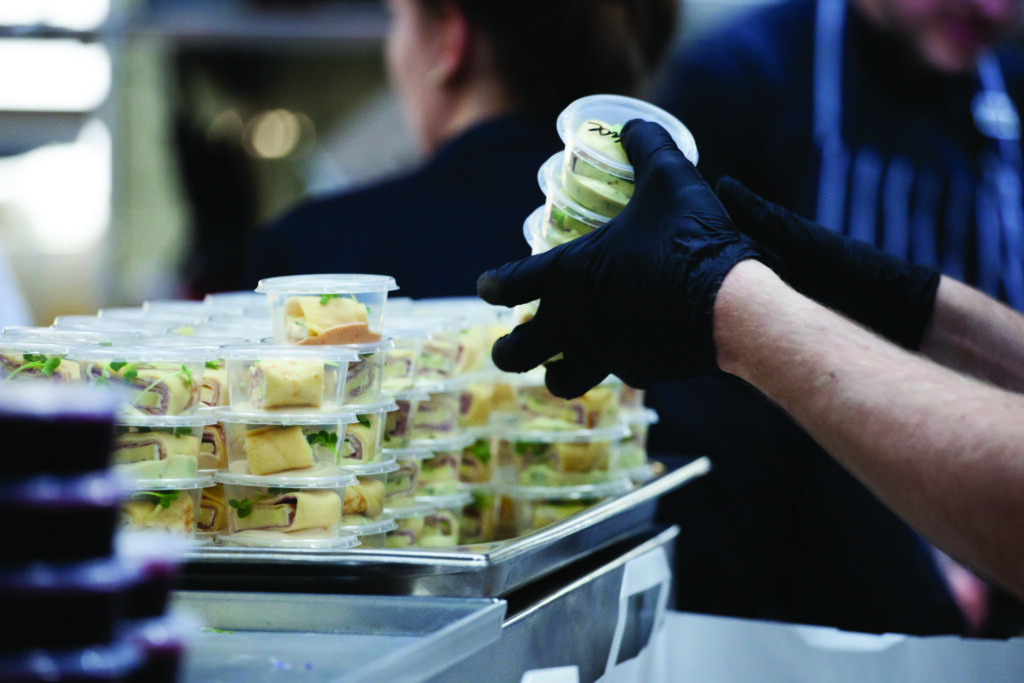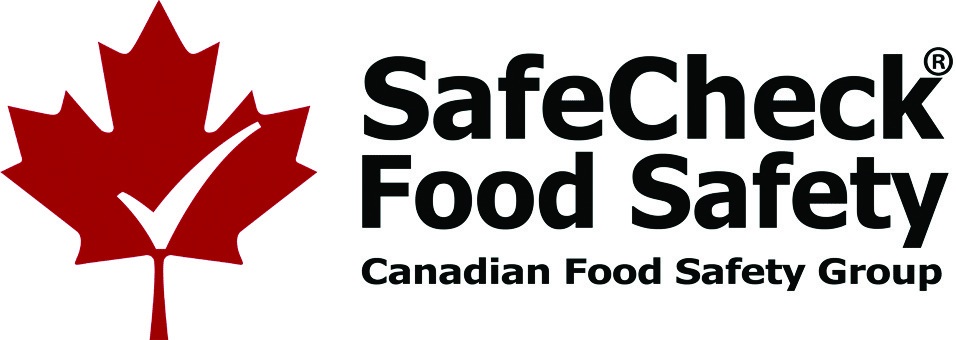The Invisible Ingredient: Food Safety Training as a Tool for Restaurant Profitability & Efficiency
From fine dining to quick service restaurants, food safety is the unheralded backbone that keeps the industry thriving. The recent surge in awareness about food-borne illnesses has spotlighted the dire consequences of neglecting this crucial aspect of foodservice. While menu design, customer experience and gastronomic delights take centre stage, the silent guardian of our dining experiences—food safety—remains in the background, often unnoticed, until disaster strikes.

Domenic Pedulla, President of Canadian Food Safety Group, got into the business in Calgary in 1999. While working at Costco, he and a friend realized that not only were they very good at cleaning, but they also really enjoyed it. As they worked to get the cleaning company off the ground, they learned that foodservice businesses didn’t want outside cleaning services, they really wanted training for their staff. They pivoted and set to creating their original suite of high-quality food safety training materials designed to provide clear information to industry staff. “When we became a food safety training company, we quickly figured out that many companies did not have food handler training or only one person on the staff had the training,” Pedulla recalls. “That’s just not enough. By 2005, we had put our focus on offering a nationally recognized food safety program to train as many people in the industry as possible for the lowest cost, because for restaurants, the barrier is always price.”
“At Restaurants Canada, we firmly believe that food safety training is not just a regulatory requirement, but a fundamental investment in people,” says Kelly Higginson, Restaurants Canada’s President and CEO. “Providing comprehensive food safety training for all staff not only ensures the well-being of customers but also fosters a culture of responsibility, accountability and professionalism. This investment can enhance employee confidence and retention, ultimately contributing to a more positive dining experience and a stronger, more reputable industry. Moreover, consistent investments in training reinforce a restaurant’s commitment to quality and safety, which plays a role in earning enduring trust and preference from consumers.”
Today, Canadian Food Safety Group and their sister company, SafeCheck® Brand Protection, have become Canada’s first names in food safety training and audits, working with many of Canada’s top foodservice brands. Canadian Food Safety Group offers a broad range of training including Food Handler, HACCP certification, WHMIS, Food Allergen Awareness, Respectful Workplace and many others. The nationally recognized Safecheck Food Safety Certification course is only $25 per person, with even lower rates for groups.
“If you have a group account, you can manage your staff directly within our learning management system,” says Pedulla. “Our goal is to make training as affordable as possible, so everybody can get trained. If it prevents one food-borne illness, it’s worth it.”
They also work with colleges and high schools, where students can get certified training on four areas of food safety for less than $20. “For a lot of young people, foodservice is their first job,” says Pedulla. “This training makes them not only instantly employable, but skilled and safe, and the restaurant doesn’t have to do anything.”
The benefits of all-staff training for foodservice operations…
Proper training is the linchpin of an effective food safety strategy. Every member of the foodservice staff, from entry-level employees to senior management, should be thoroughly educated on food safety protocols. This includes understanding how to prevent cross-contamination, the importance of maintaining correct temperatures during food storage and preparation, and the proper use of personal protective equipment.
Continuous education and regular refresher courses ensure that staff remain vigilant and up to date with the latest safety standards and regulations. Well-trained employees not only minimize the risk of food-borne illnesses but also contribute to a culture of safety that permeates the entire establishment.
“If somebody gets sick, that damages your reputation,” Pedulla points out. “That should be motivation enough. But one day of being closed down could cost a restaurant thousands of dollars, and a full shut down and a lawsuit could cost millions. I think many operators focus their concerns on risks related to alcohol service because they’ve seen those lawsuits, or slip-and-fall or other accident cases. We do independent audits through SafeCheck, and we hear, ‘I have never made anybody sick,’ all the time. My response is, ‘That you know of.’ Most people who believe they’ve experienced food-borne illness won’t report, but they blame the last thing they ate and tell others. Deferring training not only puts your business at risk, but it also risks the livelihood of your staff and damages the reputation of the entire industry.”
SafeCheck performs audits that assess the proper application of food safety measures well beyond the standard checklist or even the restaurant’s own brand standards. The goal is not only compliance, but excellence. Pedulla explains that food safety training is like insurance. “You want to be able to say you did everything within reason to protect your guest. Training just one person out of a staff of 10 or 20 may mean you’re legally compliant, but it’s not going to go down well in court.”
Training is also an investment in people, which can increase employee satisfaction and retention, which also improve efficiency. “When you invest in people, they feel they’re part of a team, with everyone moving in the same direction, on the same journey,” says Pedulla. “It builds a community within the establishment, so people stay because they feel they’re part of a larger thing.”
“Universal staff training also plays an important role in marketing,” Pedulla notes. He believes that the enhanced care and attention to detail proper training and certification provides to staff matters to customers and adds to the operation’s value proposition to the community it serves. “When customers know you’re a good employer who invests in your staff, whether it’s training or benefits or a continuing education program, they are more open to paying a few dollars more for your offering. People want to go where they feel safe, and where people are valued. If a restaurant is in the news for a food safety or public health issue, you’ve broken trust with your community, and it’s very unlikely many of them will return.”
Pedulla points out that food handling certification has a direct and positive link to food waste reduction as well, because careful food inventory management practices lead to more efficient cycling of food and ingredients. “If a business follows the ‘first thing out’ rule and has standard operating procedures in place for that, manages portion control, and optimizes protocols to guard against cross-contamination, they’ll reduce the spoilage that produces waste.”


The Path Forward
As the foodservice industry evolves, so too must its approach to food safety. Innovations in technology, such as blockchain for traceability and advanced pathogen detection methods, offer promising avenues to enhance food safety. However, the foundation remains the same: a commitment to rigorous standards, continuous education, and an unwavering dedication to protecting consumers.
Pedulla identifies stale training as a major hazard for foodservice business, recalling an exchange he had with a Red Seal Chef. “Even professionals who received their training in school and have been working for decades need to stay on top of the new science. I was in a kitchen with a seasoned chef, and he had five-gallon pails of sauce in his cooler. I asked him how long he thought they’d take to cool, and he said they’d be cool by the next day. I sent him a study from Pete Snyder, a well-known Professor of Food Science and Nutrition at the University of Minnesota who founded the Hospitality Institute of Technology & Management, a food safety training, education and consulting firm. His study showed that it actually took a metal pot in a walk-in cooler three and a half days to get down to four
degrees Celsius, because the cool sauce on the outside acts as an insulator.”
As the restaurant industry continues to dazzle with its creativity and flavours, it is the unglamorous but vital domain of food safety that ensures consumers’ enjoyment is safe and uninterrupted. The industry must remain vigilant, learning from past mistakes and continually striving to uphold the highest standards of food safety.
“We all need and want to be safer, and if any industry is equipped to do this outside of health care, it’s the food industry,” Pedulla says. “We’re working with these regulations all the time, under immense scrutiny, with the lowest margins, and the smallest percentage of safety-trained staff. Everything is against this industry, but an overwhelming percentage of the time, the food is safe. That says a lot, but we can do better. I would love to see the foodservice industry embrace food safety as a selling point. Not only do we do all this amazing stuff, but we also do it right. I would love to see owners commit to getting everyone trained.”
After all, in the quest for hospitality excellence, there is no room for compromise when it comes to guest safety and experience.
The Gravity of Food Safety
Food safety encompasses a broad spectrum of practices designed to prevent food-borne illnesses, which can range from mild discomfort to life-threatening conditions. The stakes are incredibly high: contaminated food can not only harm consumers but also irreparably damage the reputation of foodservice establishments. Despite stringent regulations and rigorous inspections, lapses in food safety still occur, sometimes with devastating consequences.
Fueling Brains Academy E. coli Outbreak
In Calgary, a severe E. coli outbreak traced to a central kitchen serving multiple daycares resulted in 350 cases, with some resulting in hemolytic uremic syndrome (HUS), a condition that affects the kidneys and causes blood clots. The outbreak, first identified in September 2023, has led to a $10 million class action lawsuit filed by impacted families against the daycares and the catering company, which also faces 12 municipal charges, including operating without a proper food services license. The trial is scheduled for September 2024.
The Chipotle Outbreaks
Chipotle Mexican Grill, once the darling of fast-casual dining, suffered a series of food safety lapses that drastically altered its public image. Between 2015 and 2016, the chain was linked to multiple outbreaks of E. coli, norovirus, and Salmonella across the United States. The fallout was severe: hundreds of customers fell ill, leading to a substantial drop in sales, a temporary closure of numerous outlets, and a significant hit to the company’s stock price. The repercussions extended beyond financial loss, shaking consumer trust and prompting Chipotle to overhaul its food safety protocols.
Epic Burger & Waffles Cronut Bruger Contamination
In Toronto, a food poisoning outbreak at the Canadian National Exhibition (CNE) in August 2013 was linked to contaminated Cronut Burgers, a croissant-doughnut pastry filled with a beef patty and topped with maple-bacon jam. Toronto Public Health officials confirmed that the burger was contaminated with Staphylococcus aureus toxin, which can cause severe nausea, vomiting, and diarrhea. The food vendor responsible, Epic Burger and Waffles, was temporarily closed as investigations and further testing were conducted. The severity of the outbreak highlighted the importance of stringent food safety practices at public events.

Canadian Food Safety Group is a Restaurants Canada Preferred Partner
To learn more about their training and their special offer for Restaurants Canada members, please visit: safecheck1.com/rc/









